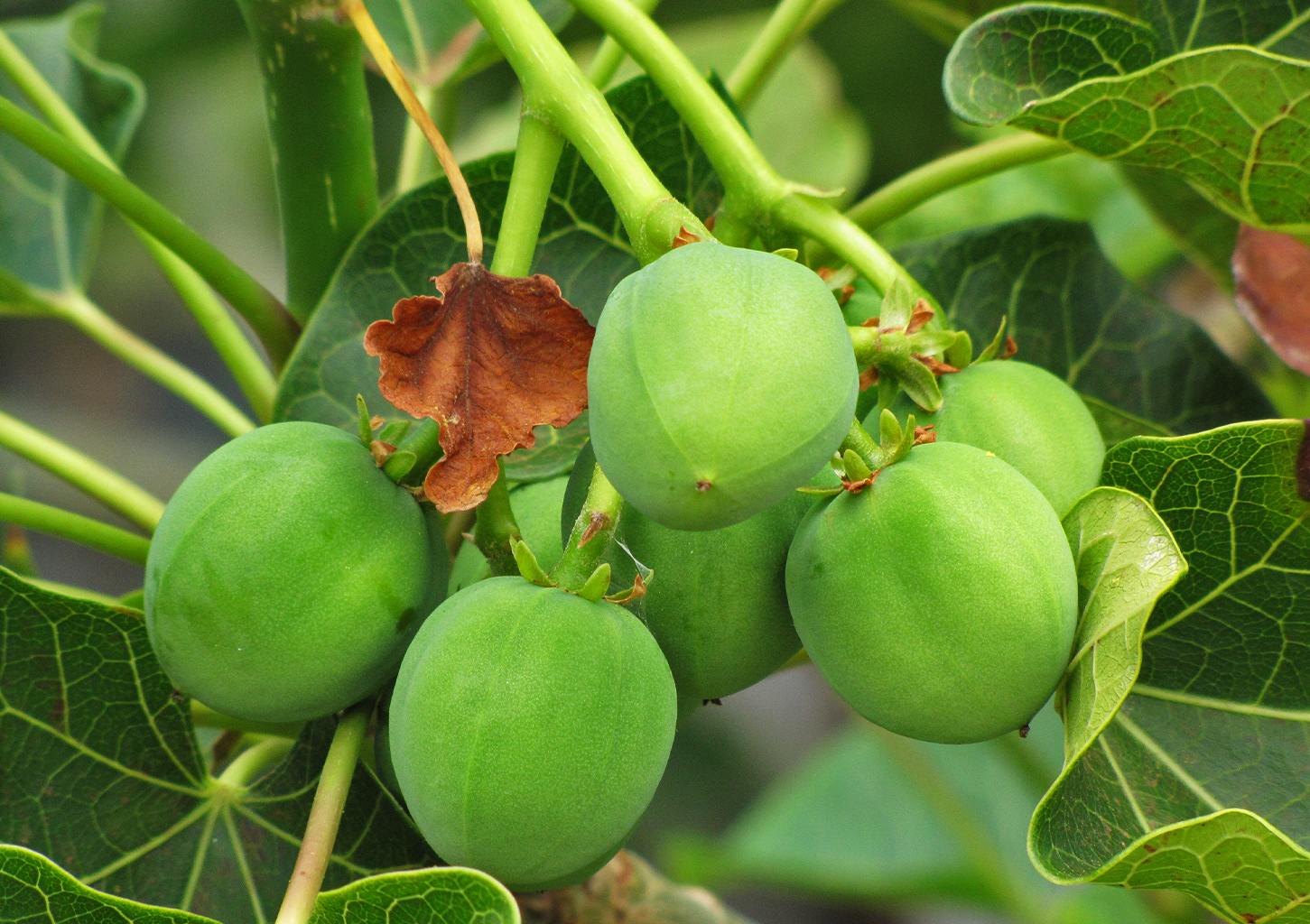Answers For VOL 6 Test 2 - Jatropha: a new biofuel
Answers and detail explain for VOL 6 Test 2 - Jatropha: a new biofuel
Explain
VOL 6 Test 2 - Jatropha: a new biofuel

Lecturer: Good afternoon. As you know, the world is running out of fossil fuels, that is crude oil, coal and natural gas. As an alternative, certain plants are now being considered as biofuels, which are fuels made from organic plant material. These are possible sources of energy once the fossil fuels have gone forever.
Well, one such plant goes by the name of Jatropha. It was first a native of Central America, and it’s now found across the world. A few things that make this plant especially attractive is that 1it can survive in very poor quality infertile soil, as it does, for example, alongside train tracks in India, on the line between Mumbai and Delhi. And for up to three years, 2it’s resistant to drought. That’s right, it can do without rain for that long. And even if it’s not actually a plant that people can eat, 3it’s still worth having it on your land, as it prevents erosion. And we looked at the dangerous consequences of that in the previous lecturer.
Furthermore, Jatropha seeds can be slowly distilled to produce diesel oil, and it’s this kind of fuel, of course, that’s of interest to scientists and power companies. After processing, the seeds can yield up to four times the oil that soybean can, 4and ten times the amount compared to corn. So you can see why it’s causing such interest. And not much is wasted in the processing procedure either. After the oil has been extracted from the seeds, the residue is processed into biomass, which can run power stations, which in turn can provide electricity for thousands of local homes. Also, whereas our fossil fuels cannot be replaced, the energy produced by biofuels such as Jatropha is renewable. It's not gonna run out because the plants just go on growing.
There’s no doubt it is a remarkable plant, and one that has been very beneficial to man. In various African communities, it’s been used to operate water pumps and refrigerate medicines. 5It can be used to produce candles, or as a fencing plant to keep some animals enclosed, and some animals out. It can also treat a number of health problems. 6For example, the boiled leaves can do much to relieve the suffering of people with malaria, and 7some Jatropha species have seeds which are used to treat digestion problems.
Anyway, that’s not what the European corporations who are buying vast amounts of land for Jatropha plantations are focusing on. They claim that people who are dependent on rural economies will benefit from growing Jatropha, and that it will help them bring an end to poverty by providing a long-term local industry. They also point out that few or no modifications would be necessary in modern diesel engines, since they were originally designed to run on bio-fuels such as peanut oil and ethane of any way. 8Of course, when the plants are burnt, they release carbon dioxide, but they absorb great amounts when they’re growing, making them a considerably greener alternative to fossil fuels. But not everyone shares the excitement over Jatropha, nor other bio fuels. In Western Australia, Jatropha has in fact been banned since the seeds of some species are toxic, and it only takes three or four to kill a person and animals are also very vulnerable. Furthermore, sceptics also point out that as there are many species of Jatropha, its oil productivity is unreliable.
Aside from this, critics of Jatropha and other biofuels claim that farmers now have a strong economic incentive to grow them rather than food crops. Poor countries would be particularly affected because they would have to rely on imported foods to survive, and people would end up having to pay greatly inflated prices for basic foods. There’s also the concern over environmental damage. In order to provide land for palm oil or sugarcane plantations, for instance, companies are cutting down vast areas of rainforest which can never be replaced, 9and this in turn results in the disappearance of wildlife which depended on that habitat. 10You can also imagine that such deforestation makes a considerable contribution to global warming. Furthermore, opponents also reject the idea that bio fuels are a carbon-neutral source of energy...
Questions 1-10
Complete the notes below Write NO MORE THAN TWO WORDS for each answer.
Plant facts
The plant jatropha
-
is originally from Central America
-
can grow in poor 1 (soil)
-
can survive 2 (drought) for several years
-
can stop 3 (erosion) of land
Its seeds
-
can be used to produce diesel oil
-
produce far more fuel than soybean or 4 (corn)
-
leave a residue after processing -used to make electricity
-
produce energy which is renewable, unlike fossil fuels
Uses of jatropha in Africa
-
for water pumps and fridges
-
made into 5 (candles)
-
used as fencing
-
the 6 (leaves) are boiled and used to treat malaria
-
for problems with 7 (digestion)
European companies' claims about jatropha
-
It could help stop poverty among rural populations
-
It could be used in current diesel engines
-
The plants use up lots of 8 (carbon dioxide)
Problems with jatropha
-
some seeds are toxic to people and animals
-
unreliable oil productivity
Other criticisms of biofuels
-
Widespread production of biofuels could result in
-
high food prices in poor countries
-
environmental damage caused by loss of rainforest and 9 (wildlife)
-
adding to the problem of 10 (global warming)
-
![[Forecast Q2-2025] - Biology lecture](https://static.helik.app/reading/8fd3d7d2-ccf9-47a3-8920-2e7a3b0d6607)
![[Forecast Q2-2025] - Living in the City](https://static.helik.app/reading/1a60bcf3-f3a7-4e9b-97a2-94d156a0de3b)
![[Forecast Q2-2025] - Student Union](https://static.helik.app/reading/fb443123-8c1d-447e-8c79-5a01650f4754)
![[Forecast Q2-2025] - Fruit-picking Job in an Orchard](https://static.helik.app/reading/e1968346-6c55-44ae-b8d3-f6a4fb7207b9)
![[Forecast Q2-2025] - University Crime Prevention](https://static.helik.app/reading/bdda593e-16d6-4c72-8a12-b116e917b27c)
![[Forecast Q2-2025] - Business Course](https://static.helik.app/reading/3308e282-99a6-4bcb-9d22-0b488701d968)
![[C20T1] - Choosing a restaurant](https://static.helik.app/reading/e9b21123-c43c-42fb-88b7-5d0be3a37e03)
